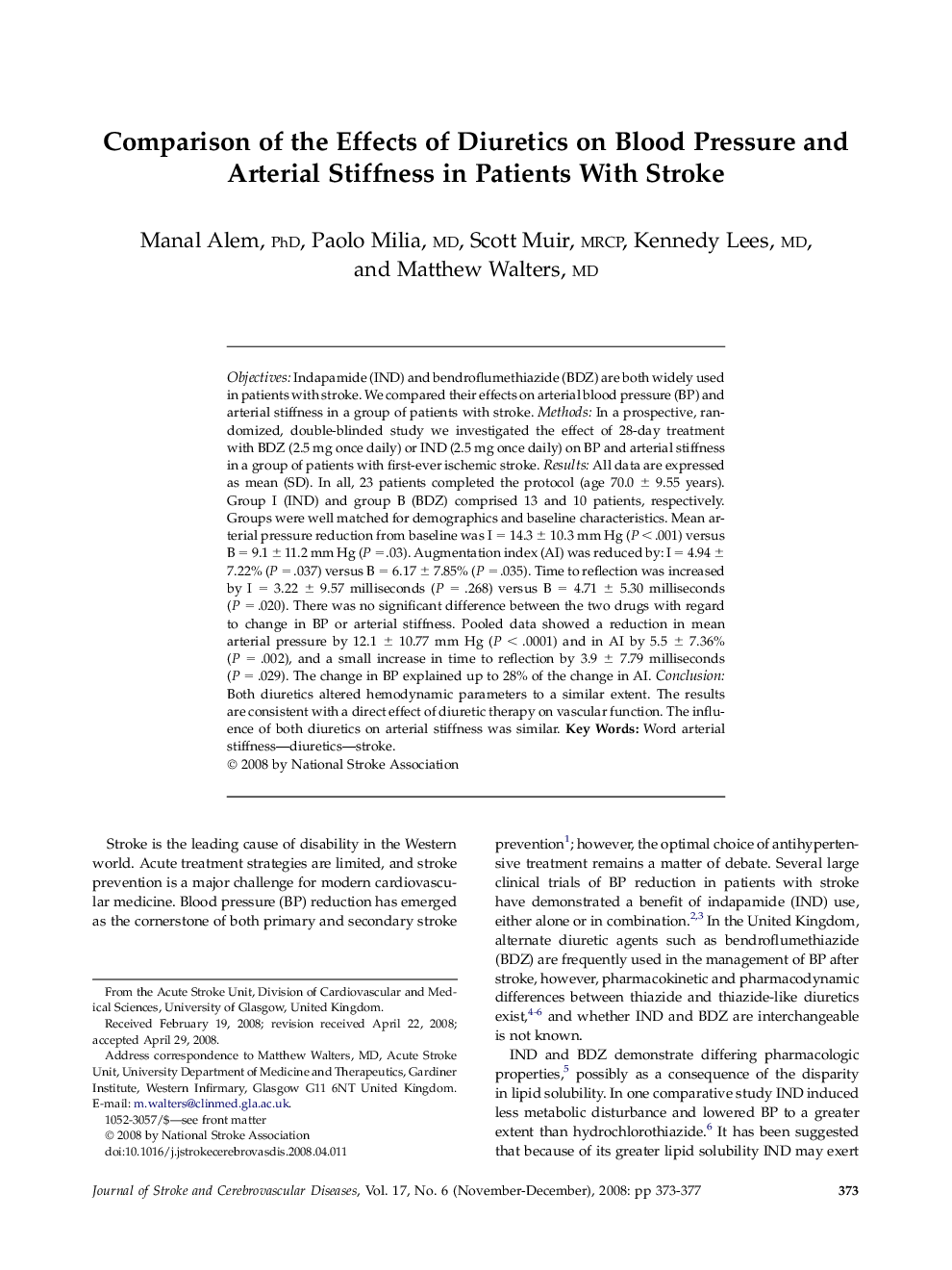| Article ID | Journal | Published Year | Pages | File Type |
|---|---|---|---|---|
| 2707736 | Journal of Stroke and Cerebrovascular Diseases | 2008 | 5 Pages |
ObjectivesIndapamide (IND) and bendroflumethiazide (BDZ) are both widely used in patients with stroke. We compared their effects on arterial blood pressure (BP) and arterial stiffness in a group of patients with stroke.MethodsIn a prospective, randomized, double-blinded study we investigated the effect of 28-day treatment with BDZ (2.5 mg once daily) or IND (2.5 mg once daily) on BP and arterial stiffness in a group of patients with first-ever ischemic stroke.ResultsAll data are expressed as mean (SD). In all, 23 patients completed the protocol (age 70.0 ± 9.55 years). Group I (IND) and group B (BDZ) comprised 13 and 10 patients, respectively. Groups were well matched for demographics and baseline characteristics. Mean arterial pressure reduction from baseline was I = 14.3 ± 10.3 mm Hg (P < .001) versus B = 9.1 ± 11.2 mm Hg (P = .03). Augmentation index (AI) was reduced by: I = 4.94 ± 7.22% (P = .037) versus B = 6.17 ± 7.85% (P = .035). Time to reflection was increased by I = 3.22 ± 9.57 milliseconds (P = .268) versus B = 4.71 ± 5.30 milliseconds (P = .020). There was no significant difference between the two drugs with regard to change in BP or arterial stiffness. Pooled data showed a reduction in mean arterial pressure by 12.1 ± 10.77 mm Hg (P < .0001) and in AI by 5.5 ± 7.36% (P = .002), and a small increase in time to reflection by 3.9 ± 7.79 milliseconds (P = .029). The change in BP explained up to 28% of the change in AI.ConclusionBoth diuretics altered hemodynamic parameters to a similar extent. The results are consistent with a direct effect of diuretic therapy on vascular function. The influence of both diuretics on arterial stiffness was similar.
